Things You Missed In GET OUT! Masterful Horror Deciphered
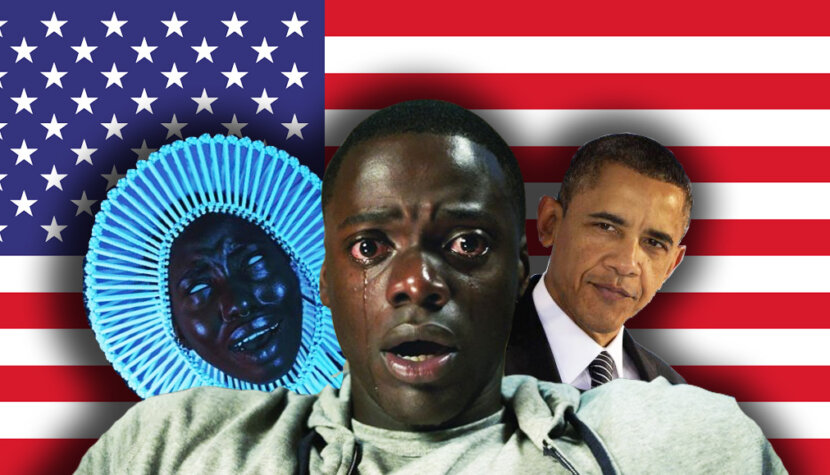
To everyone’s surprise, the film not only filled the box office with dollars but also impressed critics and received four Oscar nominations, one of which – for Best Original Screenplay – turned into a statuette.
Get Out was filled to the brim with allusions and symbols – it tackled the problem of racism and social differences in contemporary America in a very thoughtful way. In the following text, I will try to present what I consider the most interesting clues, references, and unobvious motifs.
Warning! The explanation is full of spoilers!
The White Neighborhood
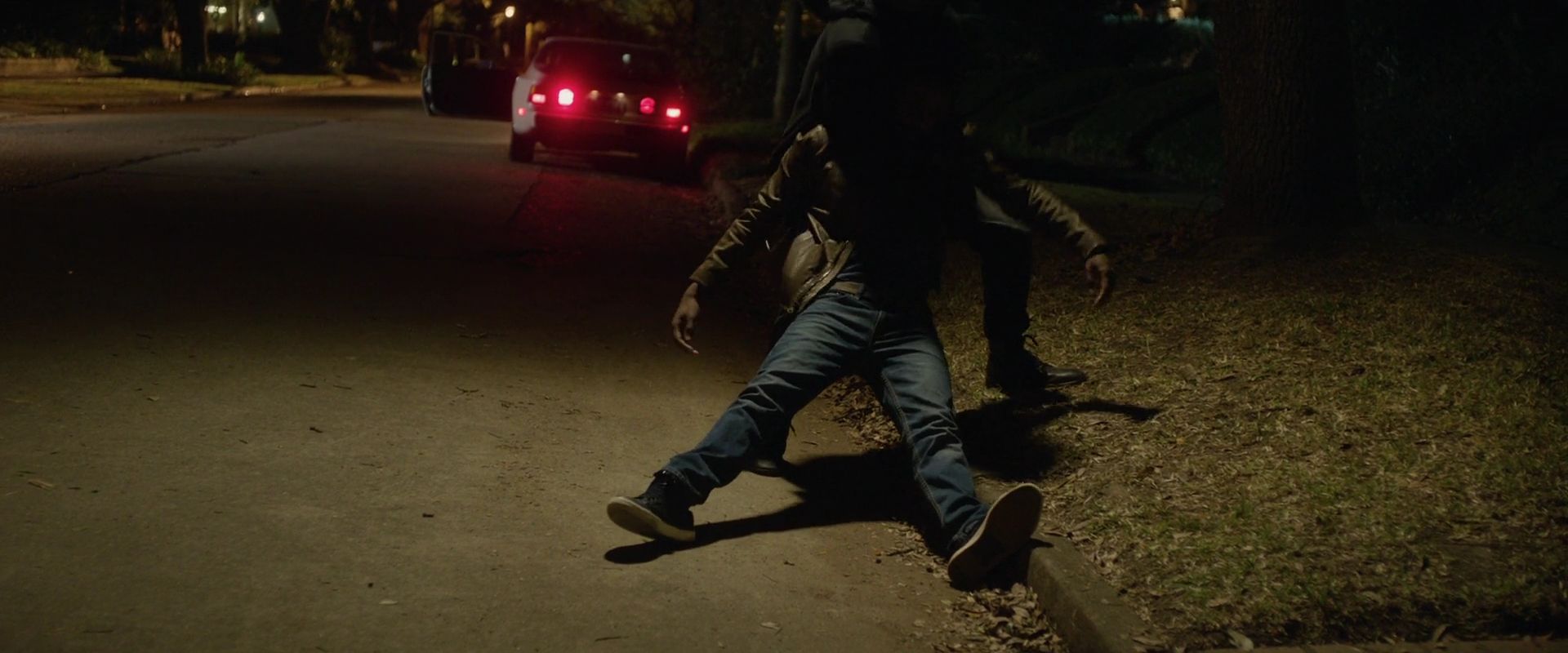
In the opening sequence of the film, the character played by Lakeith Stanfield (Atlanta, Sorry to Bother You) wanders through affluent suburbs that are generally reserved for white people. He can’t find the address and complains to someone over the phone that he doesn’t belong there. Eventually, a terrifying car approaches him, and shortly after, the man is kidnapped. This is a brilliant reversal of the cinematic trope of a protagonist getting lost in a bad neighborhood and encountering trouble from its pathological residents.
Music
At the beginning of the film, we hear a piece by Michael Abels called Sikiliza Kwa Wahenga, which in the East African Swahili language means “listen to (your) ancestors”. This is the first reference in the film to slavery and racial identity. In the scene where we meet Chris – the film’s main protagonist – we hear Redbone by Childish Gambino. At one point in the song, the words “stay woke” are repeated, a phrase associated with the Black Lives Matter movement, and “woke” describes people aware of social and racial issues.
The Shotgun
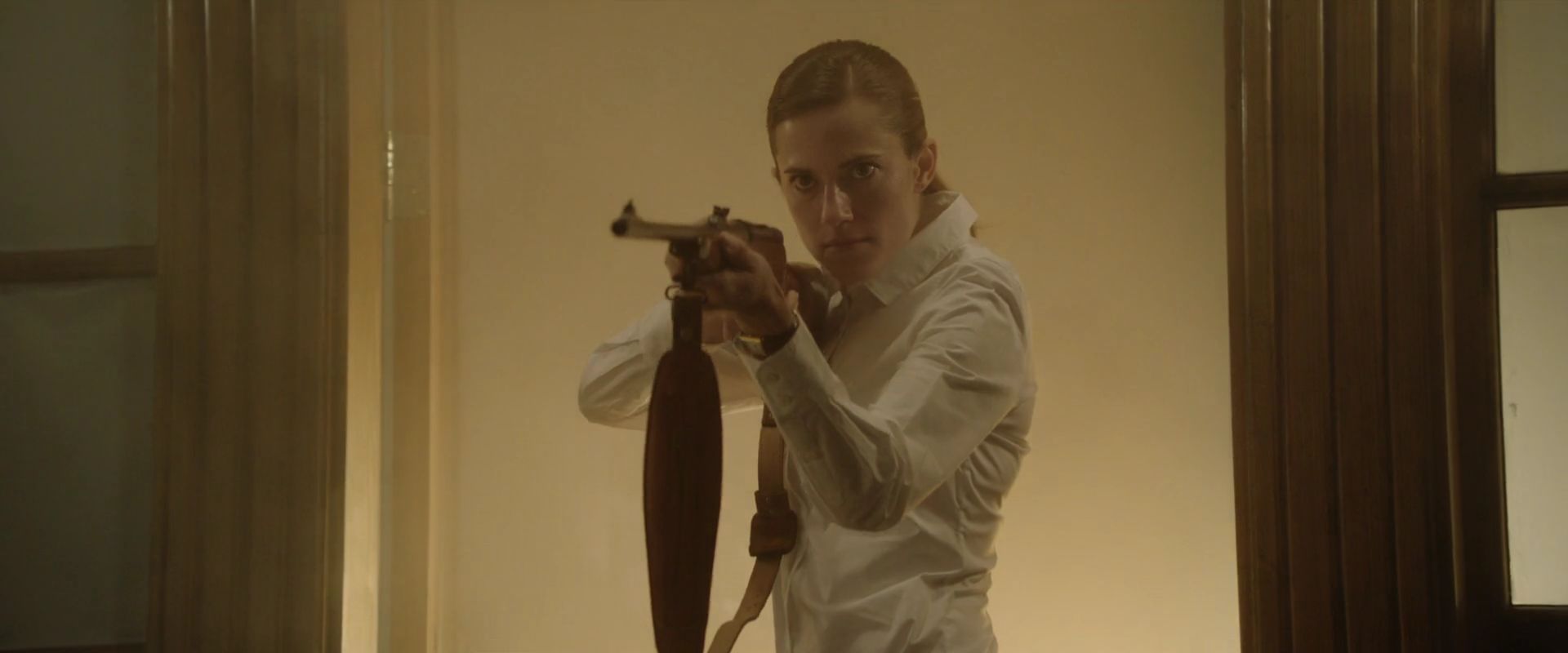
Anton Chekhov once said that if a gun hangs on the wall in the first act, it must fire in the last act. The same goes for Get Out! At the beginning of the film, Chris suggests that Rose warn her parents that she is bringing a black boyfriend home. As he says, he doesn’t want to end up running across the lawn in front of a shotgun. However, that is exactly how it ends. He is chased not by Rose’s family but by Rose herself.
The Deer
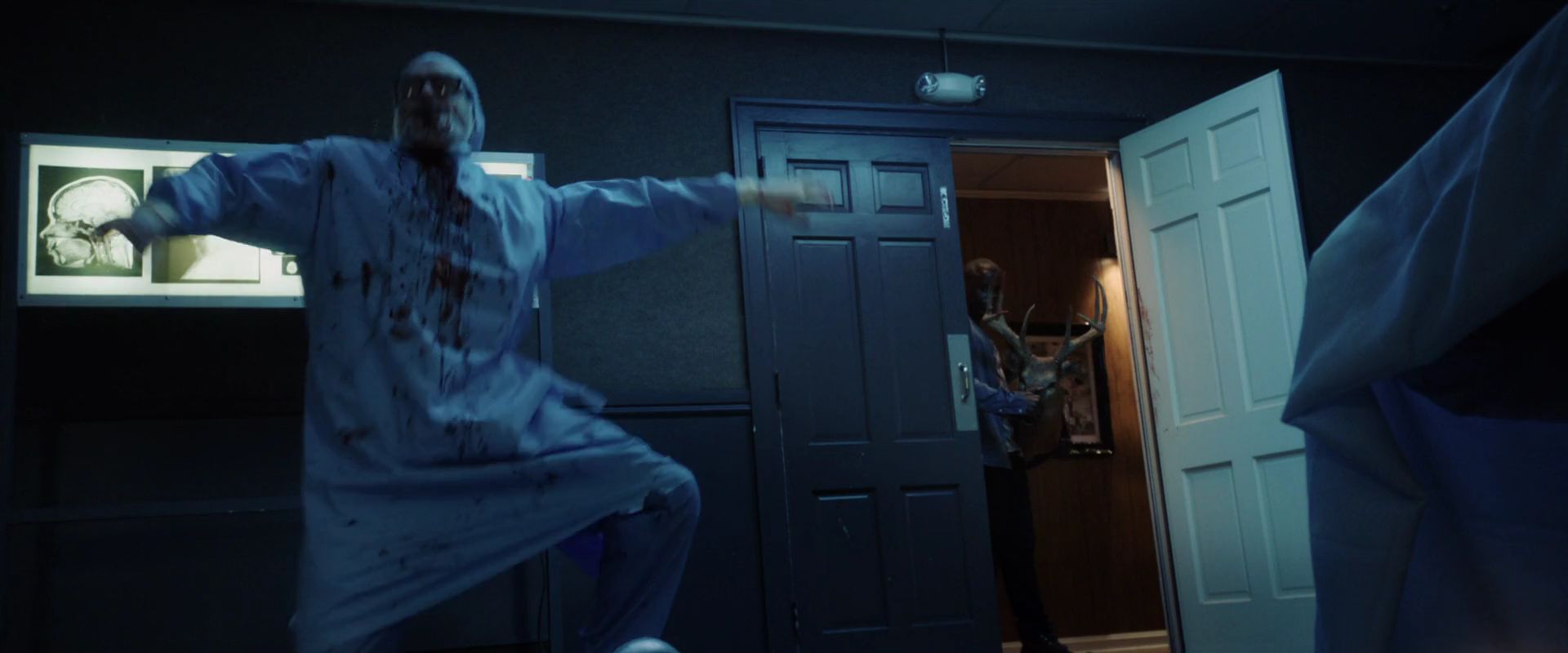
While driving to Rose’s parents, a deer appears on the road, and Rose accidentally hits it. This thread initiates another topic, which is discussed later in this analysis, but it also shows the difference between Chris and Rose. Chris rushes to check on the animal, showing empathy, while Rose stays by the car. Her father, when he learns about the situation, expresses satisfaction. He considers deer pests and is pleased with every representative of the species killed. It’s worth adding that, in an ironic twist, the Armitage family father is killed with antlers in the film’s finale.
The ID
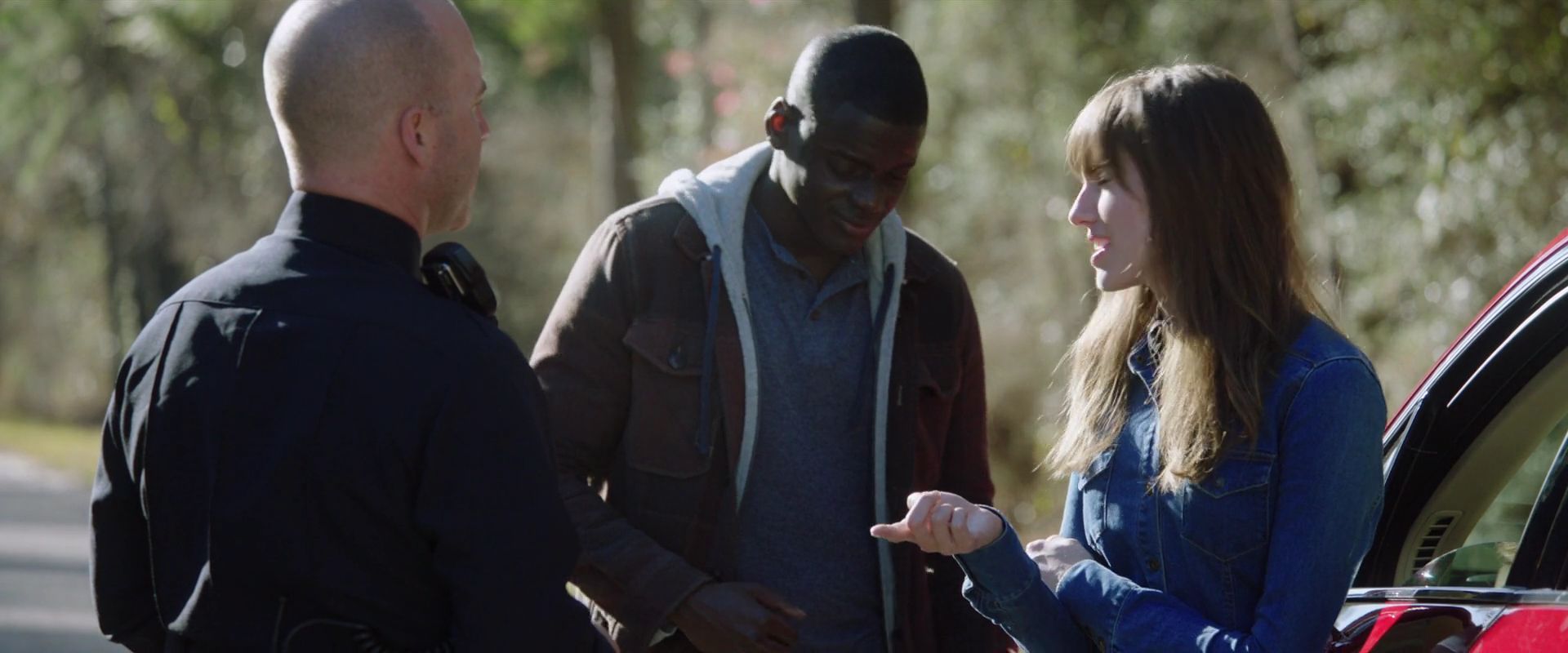
After hitting the deer, Rose calls the police to the accident scene. A white policeman asks Chris to show his ID, which prompts a vehement protest from his girlfriend. At this stage, viewers think that she is trying to protect her boyfriend from racist treatment by the officer. However, as time goes on, we realize that according to Rose’s plans, Chris was never supposed to return from the trip, and the officer knowing his identity could bring trouble to the Armitage family. Her apparent concern turns out to be a mere act of protecting her own interests.
Omega
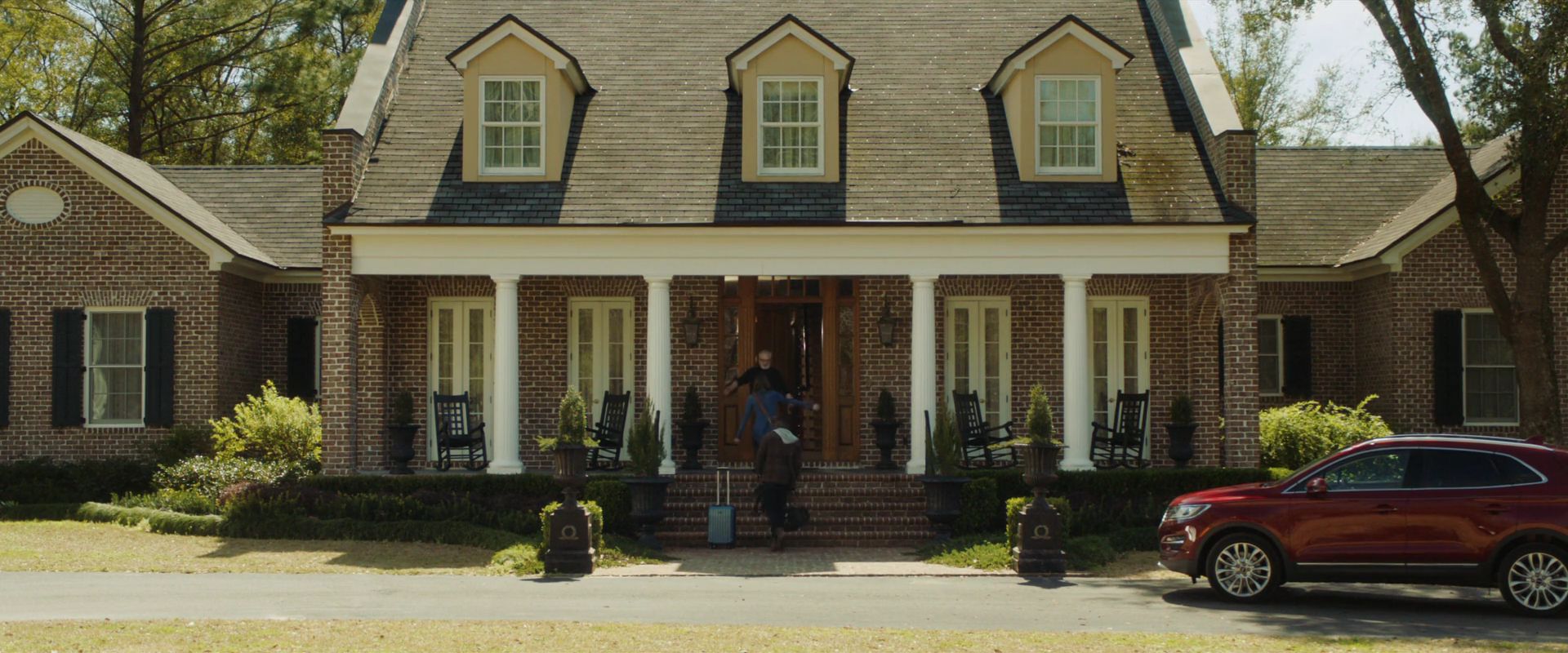
When Rose and Chris arrive at her parents’ house, we can see omega (Ω) symbols on both sides of the building – the last letter of the Greek alphabet. If we look for symbolism here, it could be interpreted as emphasizing that the place is supposed to be the end of Chris’s current life. Culturally, omega is associated with an ultimate end.
Georgina and Walter
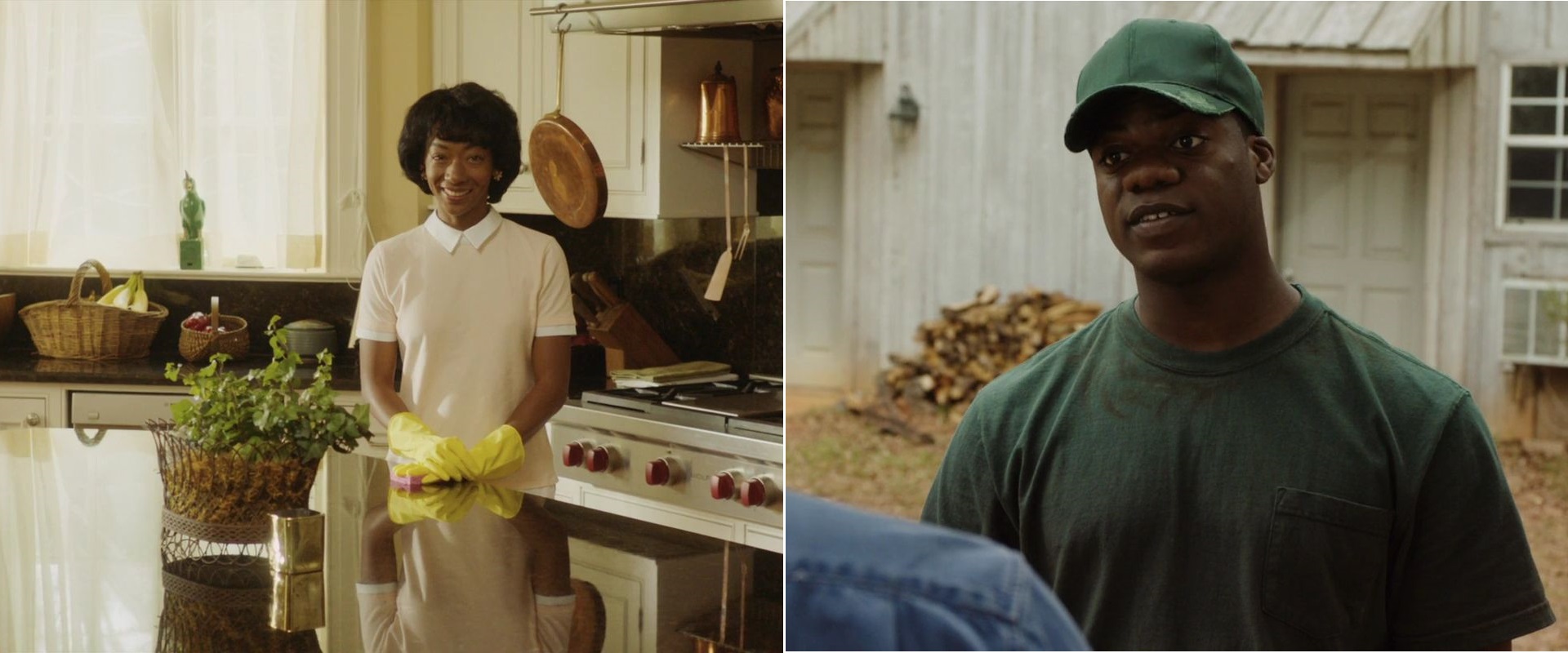
When Dean, Rose’s father, shows Chris around the property, he notices that the sight of a black servant may seem awkward and very stereotypical to Chris. Dean explains the presence of Georgina and Walter – he claims they were hired to help his parents, and when they died, he couldn’t let them go. The explanation makes sense, but viewers don’t yet know that when Dean says he “couldn’t let them go”, he doesn’t mean Georgina and Walter but his parents, who were subjected to a gruesome procedure that we learn about in the film’s last act.
The Berlin Olympics
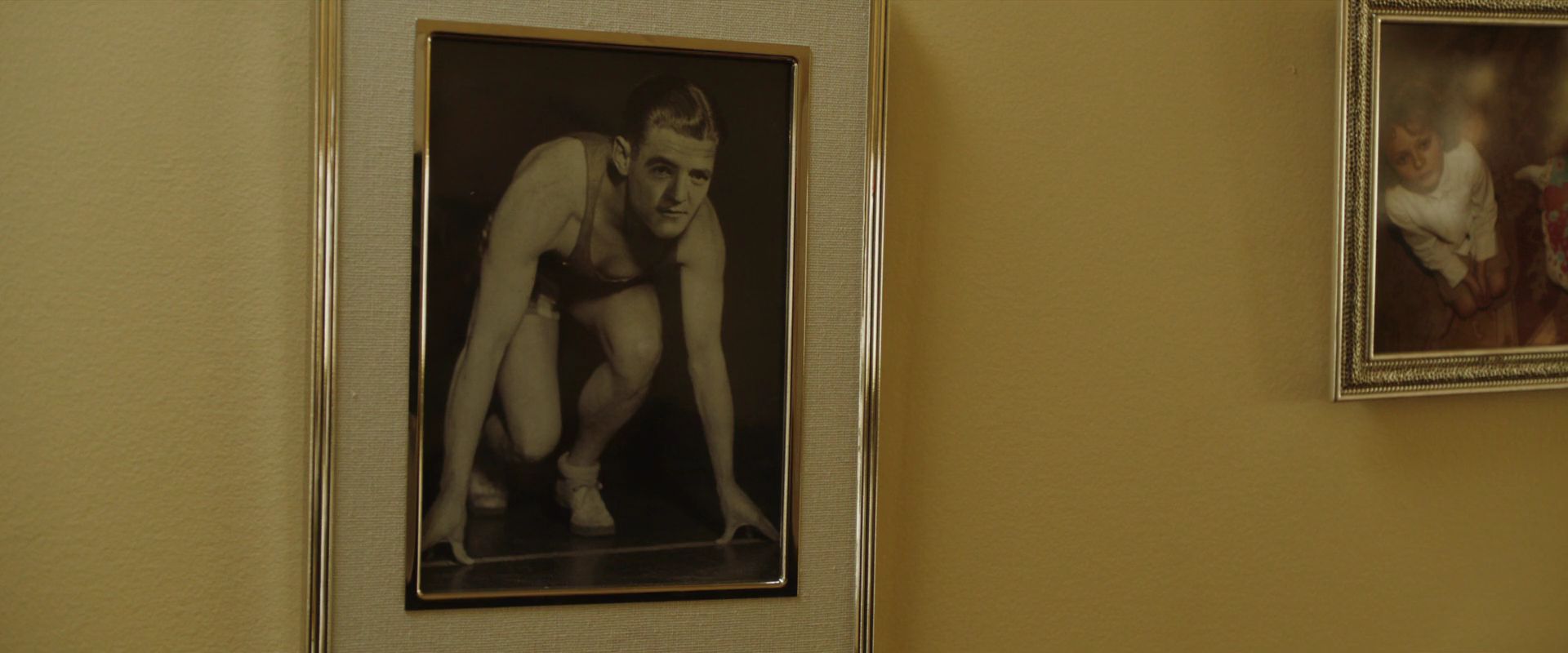
Dean also mentions that his father participated in a race during the famous Berlin Olympics, where a black athlete won in front of Adolf Hitler. Chris observes that although it was a glorious moment, for Rose’s grandfather, it must have still meant losing at the Olympics. Some time later, in an unsettling scene, Chris sees Walter, who is actually the senior Armitage, running toward him, showing that he still has a passion for the sport.
Transplantation Scars
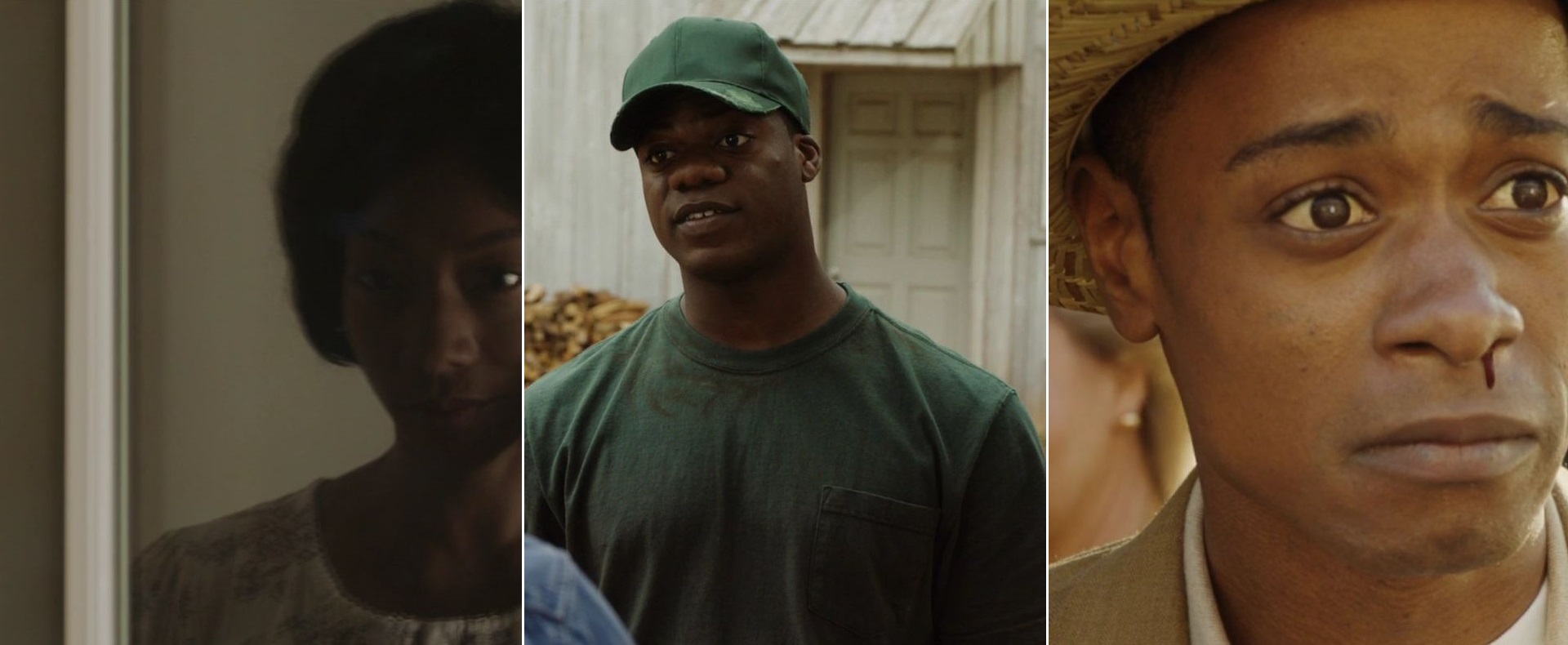
As we learn from the film’s finale, the Armitage family performs heinous brain transplants on black people, transferring the consciousness of wealthy seniors into their bodies. Georgina and Walter, who live on the property, and Logan, who arrives with invited guests, have undergone the procedure. The two men constantly wear hats to hide the scars from the procedure, and Georgina is often seen near a mirror, as if to ensure her hairstyle adequately conceals the operation’s visible traces.
Silver Spoon
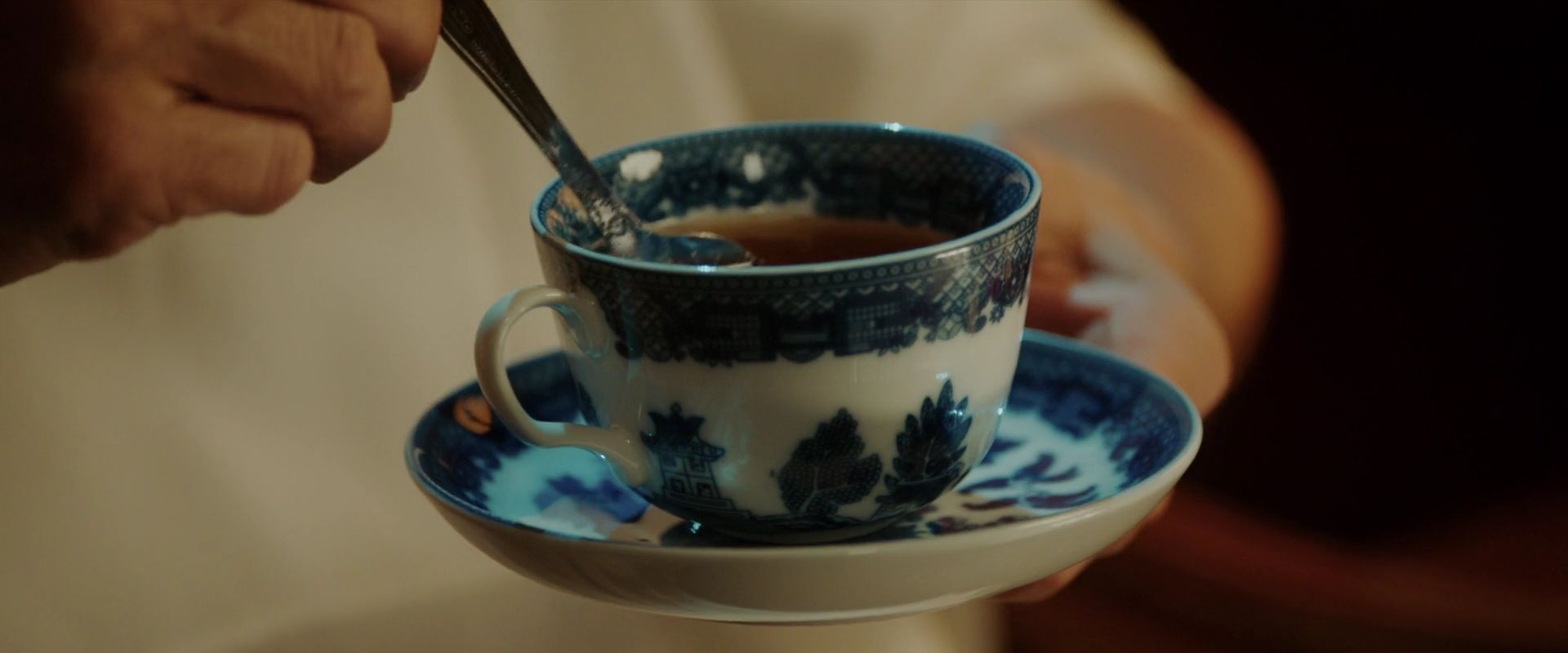
Rose’s mother hypnotizes Chris so that he falls into a trance at the sound of a spoon stirring tea in a cup. Director Jordan Peele emphasizes that slave owners summoned their servants by striking cups with spoons. In English, the expression “born with a silver spoon in one’s mouth” highlights the class difference between Chris and the Armitage family. In one unsettling scene, Georgina spills iced tea because the lady of the house accidentally hits the glass with a spoon, putting her in a brief trance.
The Sunken Place

The Sunken Place, as Rose’s mother calls the space Chris ends up in due to her hypnosis, represents the state black people are in within the United States. Chris is frightened, motionless, observed, and controlled by whites. Jordan Peele also provides a more concrete meaning for this descent into the abyss – it symbolizes the marginal role black actors play in American horror films.
The Asian
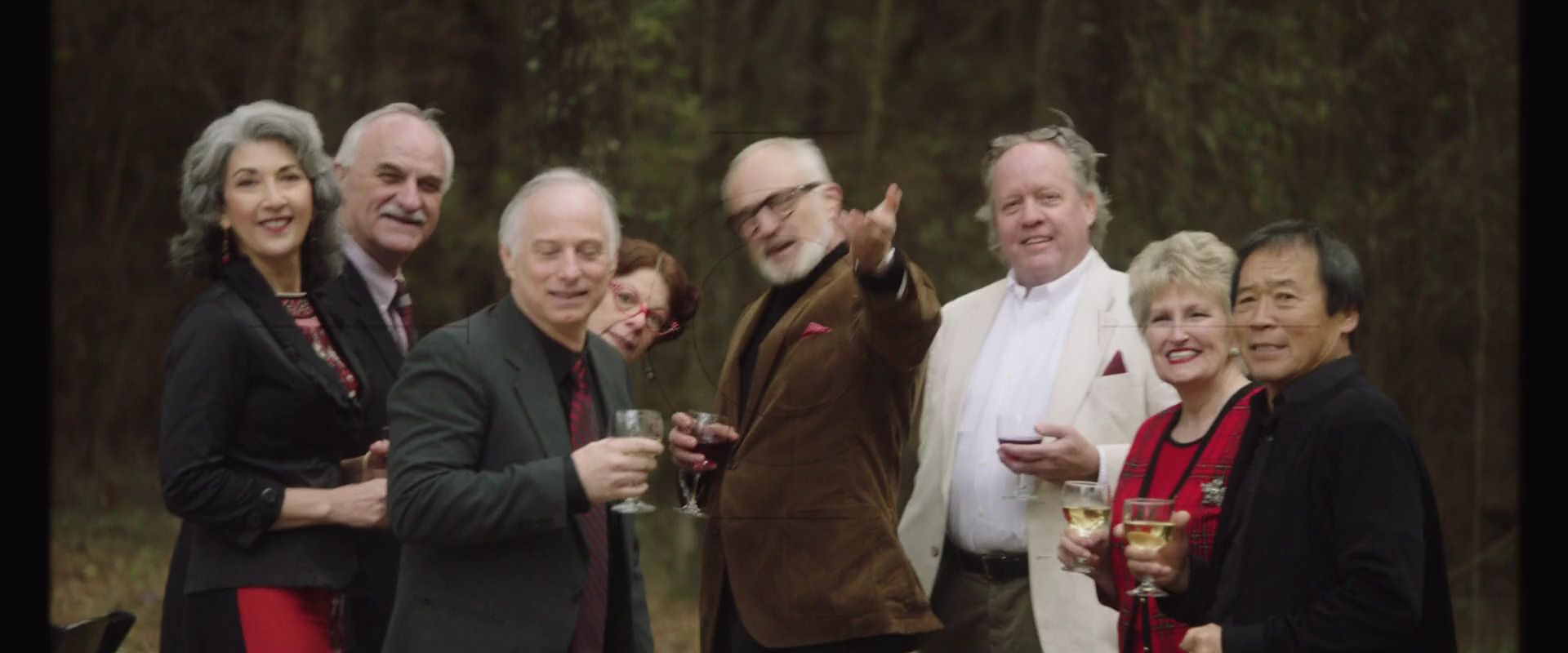
Among the group of affluent white women and men arriving at the estate, there is one Asian. His presence, though in the minority, may reference theories about the complicity of Asian Americans in the discrimination of black people. Social activist Ranier Maningding emphasizes that Asians may not play a significant role in white supremacy, but their acquiescence makes them complicit in supporting this world order.
The Mobile Phone
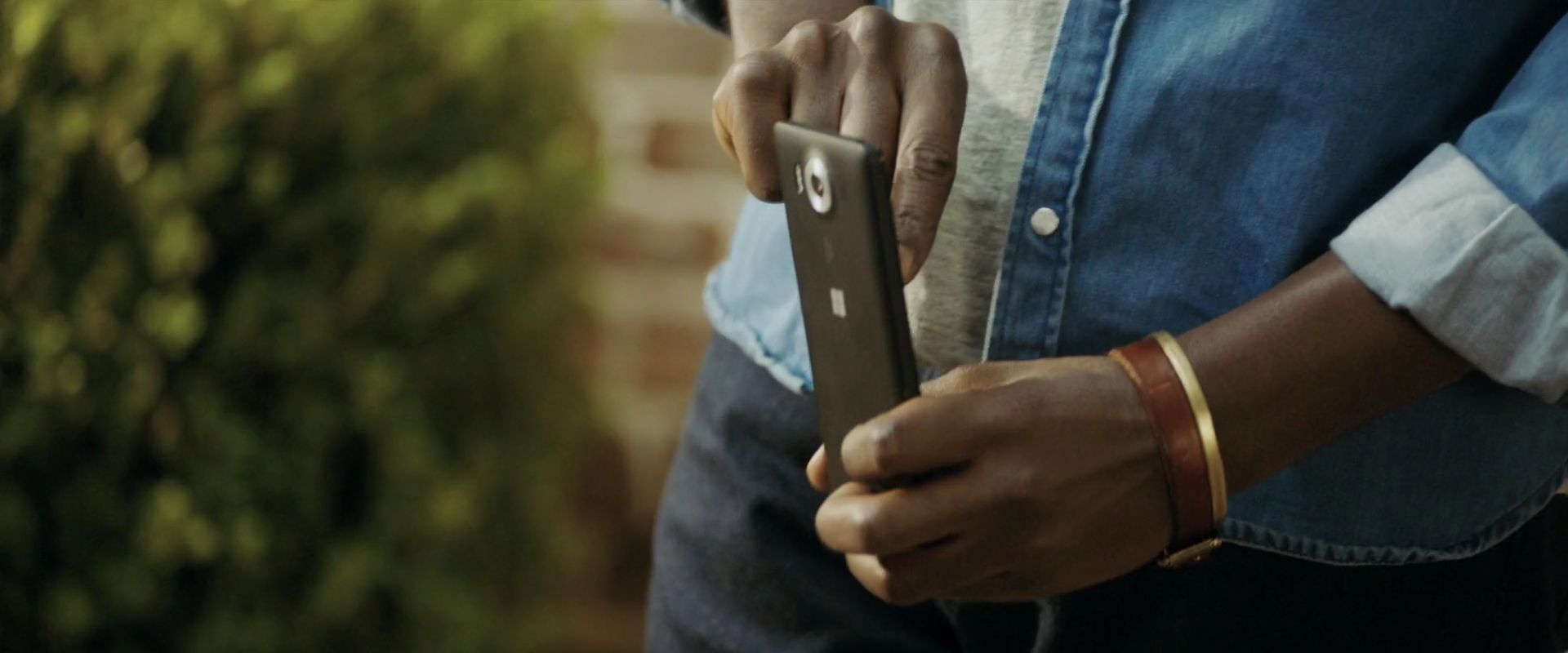
Worried by Logan’s strange behavior and the feeling that he knows him from somewhere, Chris decides to take a picture of the man, momentarily snapping him out of his trance. It is also through the mobile phone that Chris determines Logan’s identity, understands the bizarre situation he is in, and decides to leave the Armitage estate as soon as possible. This is an effective metaphor for the situation in recent years in America, where photos and videos taken with mobile phones have helped shed light on police brutality against the black community.
Colors
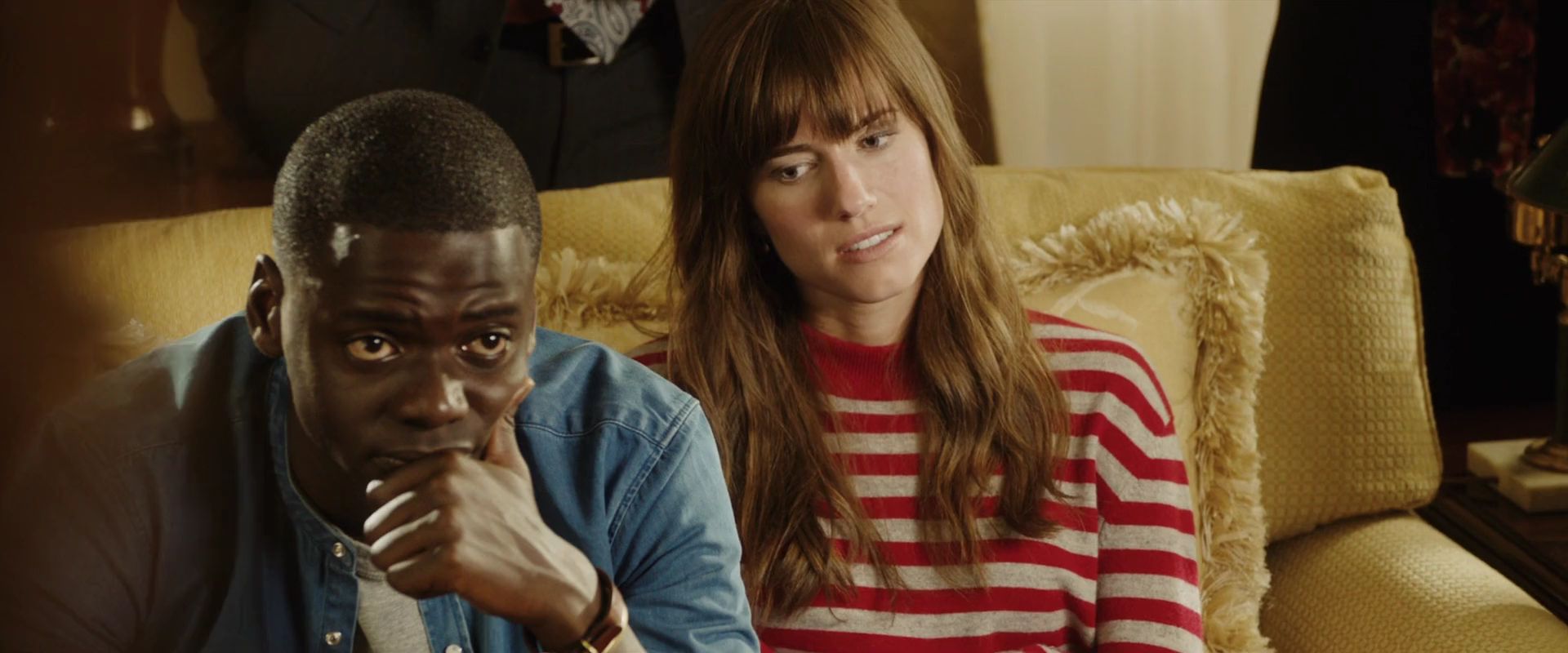
As we well know, the United States has a two-party system – the only significant parties are the liberal Democratic Party (from which the first black president of this country, Barack Obama, is mentioned several times in the film) and the conservative Republican Party. In the attire of the hosts and all the guests invited to the Armitage’s house for the weekend, we find red elements of clothing. Red is considered the color of the Republicans. Red is also the symbol of the infamous racist organization operating in the United States – the Ku Klux Klan. The Democrats’ color, on the other hand, is blue, and this color dominates Chris’s clothing. In one scene, we also see Chris and Rose sitting next to each other, recreating the American flag with their attire.

Bingo
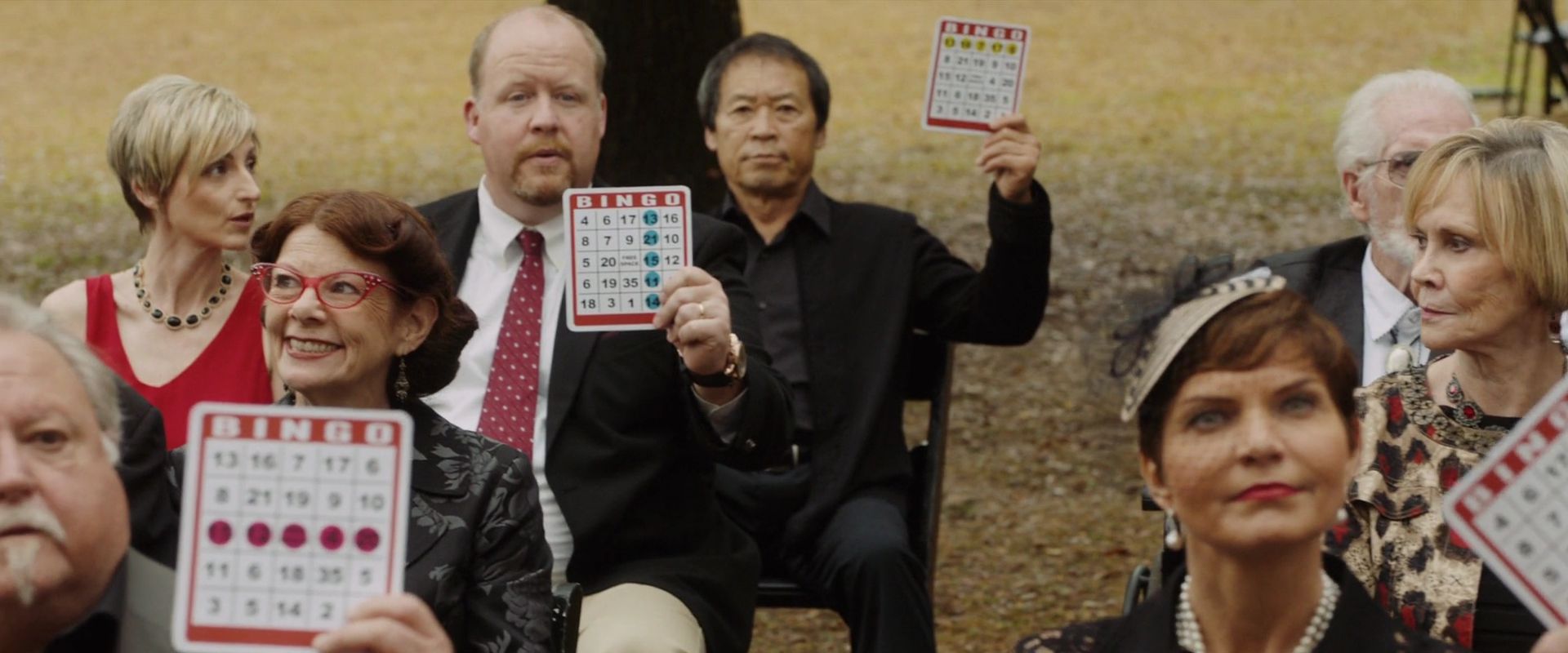
The disturbing yet atmospheric bingo scene, which turns out to be an auction for Chris’s body among the guests invited for the weekend, is an obvious and immediate reference to the auction of black slaves by wealthy white Americans. It’s also worth noting that the Armitage family emphasizes earlier that these weekend gatherings are a tradition started by the previous generation. This can be seen as a reference to another issue America faces – “old money” and multi-generational wealthy families that significantly influence the country’s politics and society.
Picking Cotton and Leather Straps
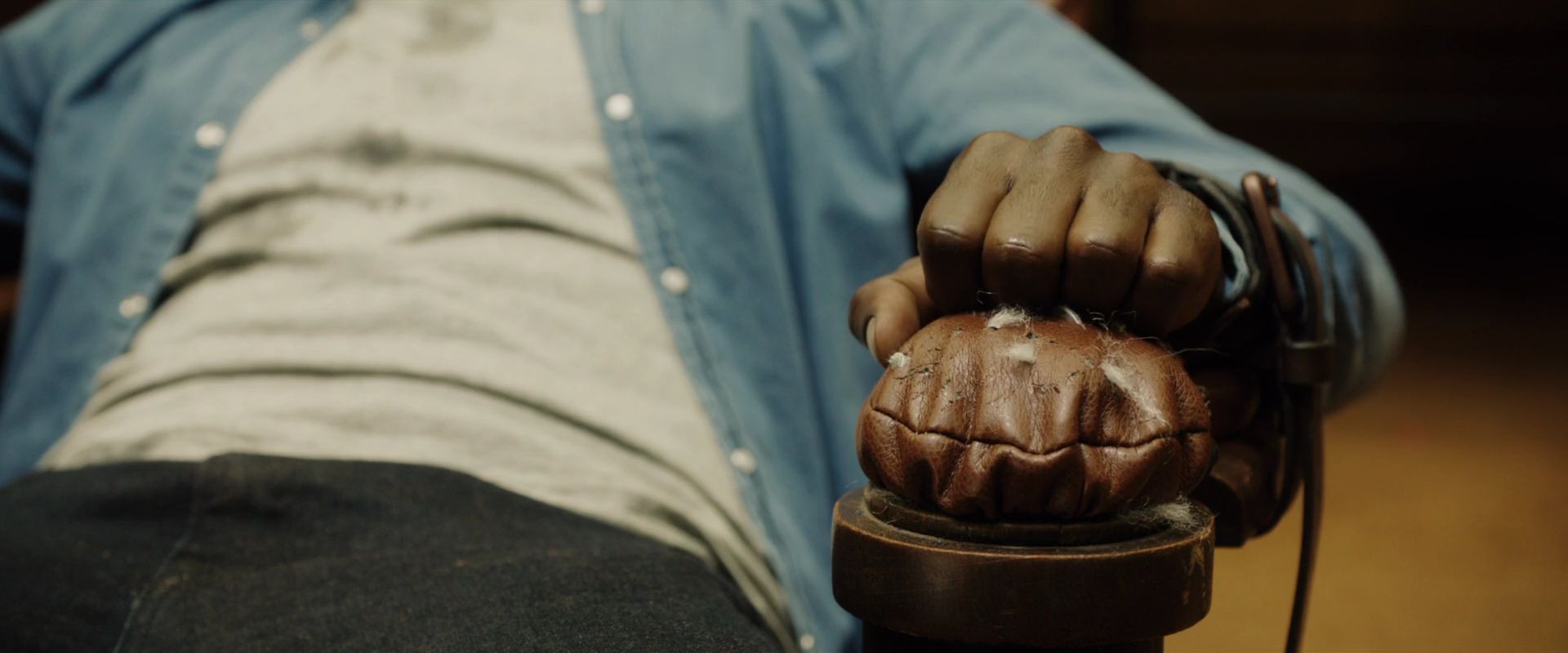
Towards the end of the film, Chris is overpowered by the Armitage family and tied to a chair in a distinctive room with a television. His hands and legs are bound with leather straps, and the only thing his hands can do is tear tufts of cotton from the chair’s upholstery. This is an obvious reference to the slave labor of black Americans. Quite ironically, the cotton ends up saving Chris’s life.
Cereal and Milk

While listening to Time of My Life from the movie Dirty Dancing and possibly searching the internet for more victims, Rose eats colorful breakfast cereal and drinks milk. This is an unusual method of consuming them, which can be seen as an allusion to the idea of racial segregation. The scene where Rose listens to music and surfs the internet while detaching herself from the brain transplant operation happening downstairs may also reference the turning away from social problems and racial inequalities.
White Car and Knight’s Helmet
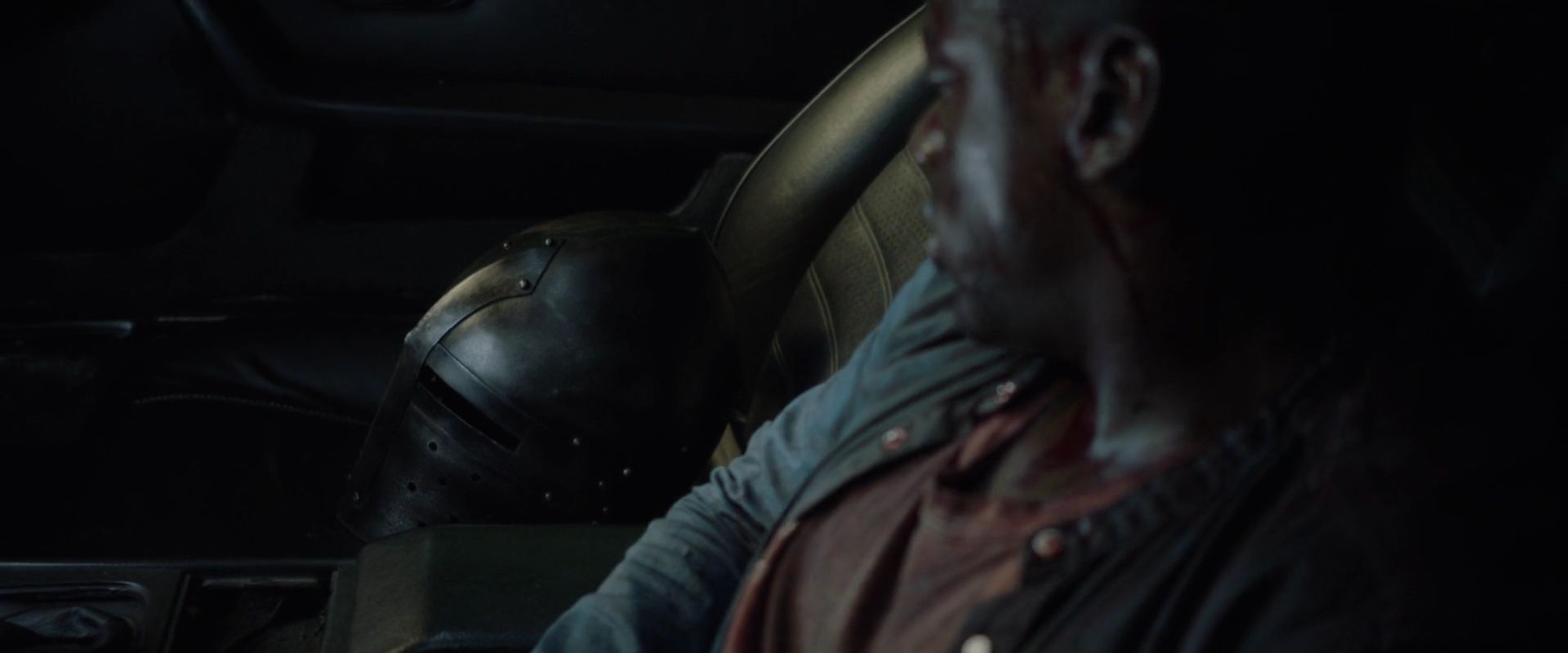
In the final sequence, Chris tries to escape the estate using a car belonging to Rose’s brother. The car is white, which doesn’t need much explanation, and on the passenger seat lies a knight’s helmet, which might throw the viewer off a bit. This could be seen as an attachment to tradition, the aforementioned “old money,” but most importantly, members of the Ku Klux Klan called themselves knights. And speaking of cars, Rose’s car is red (again, the color of the Republican Party and the Ku Klux Klan), and the cars of the Armitages’ guests are black. This can be interpreted as a reference to their liberal racism, discussed two points below.
Abandonment Theme
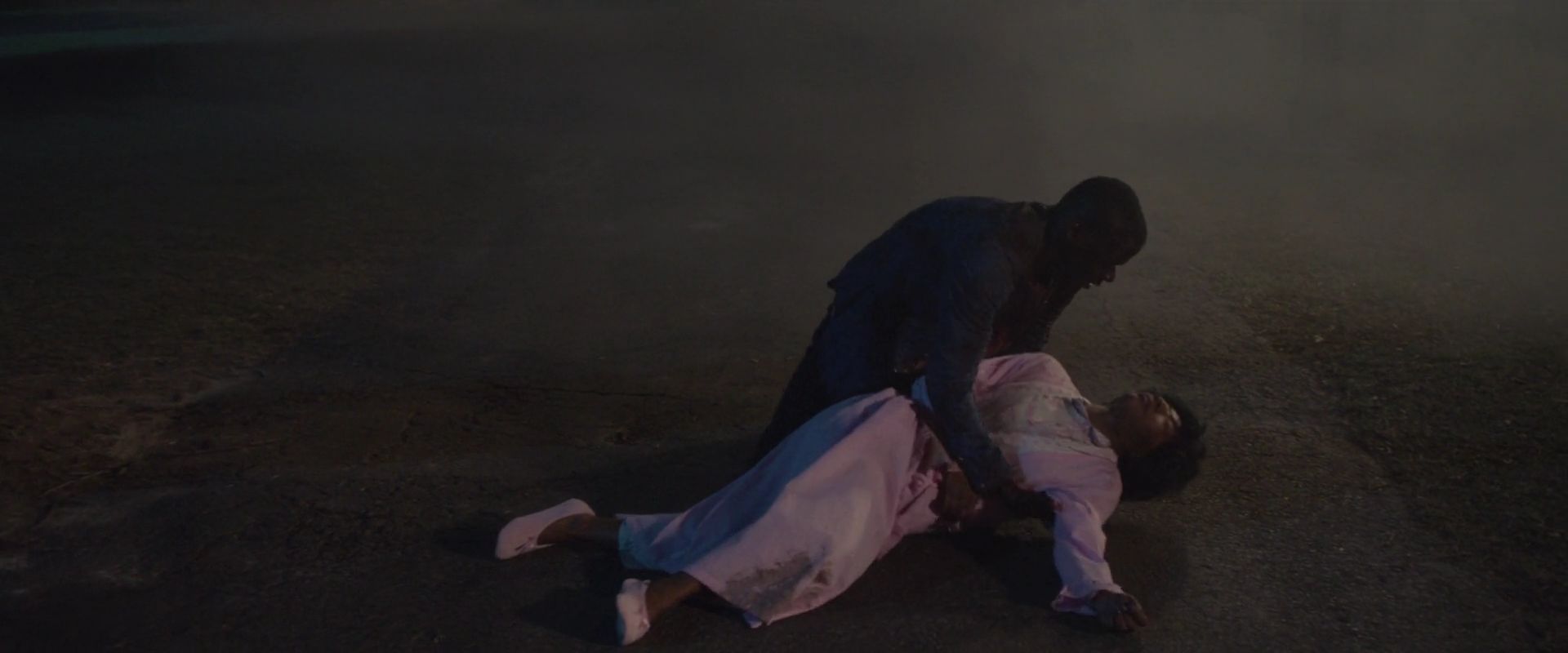
One of the absolutely crucial motifs for Chris’s character is his mother’s death. She was injured in an accident and died before reaching the hospital due to the lack of attention from her son, who was watching TV at home at the time. Chris blames himself, thinking that if he had reported to the police that his mother hadn’t come home for an uncomfortably long time, she might have been found and saved. This theme is already foreshadowed by the hit deer motif, but it returns with full force in the finale when Chris decides not to leave the accidentally hit Georgina on the road. Although this decision leads him to more trouble, Jordan Peele emphasized that this is a nod to the necessity of unwavering support within the Black community.
Liberal Racism
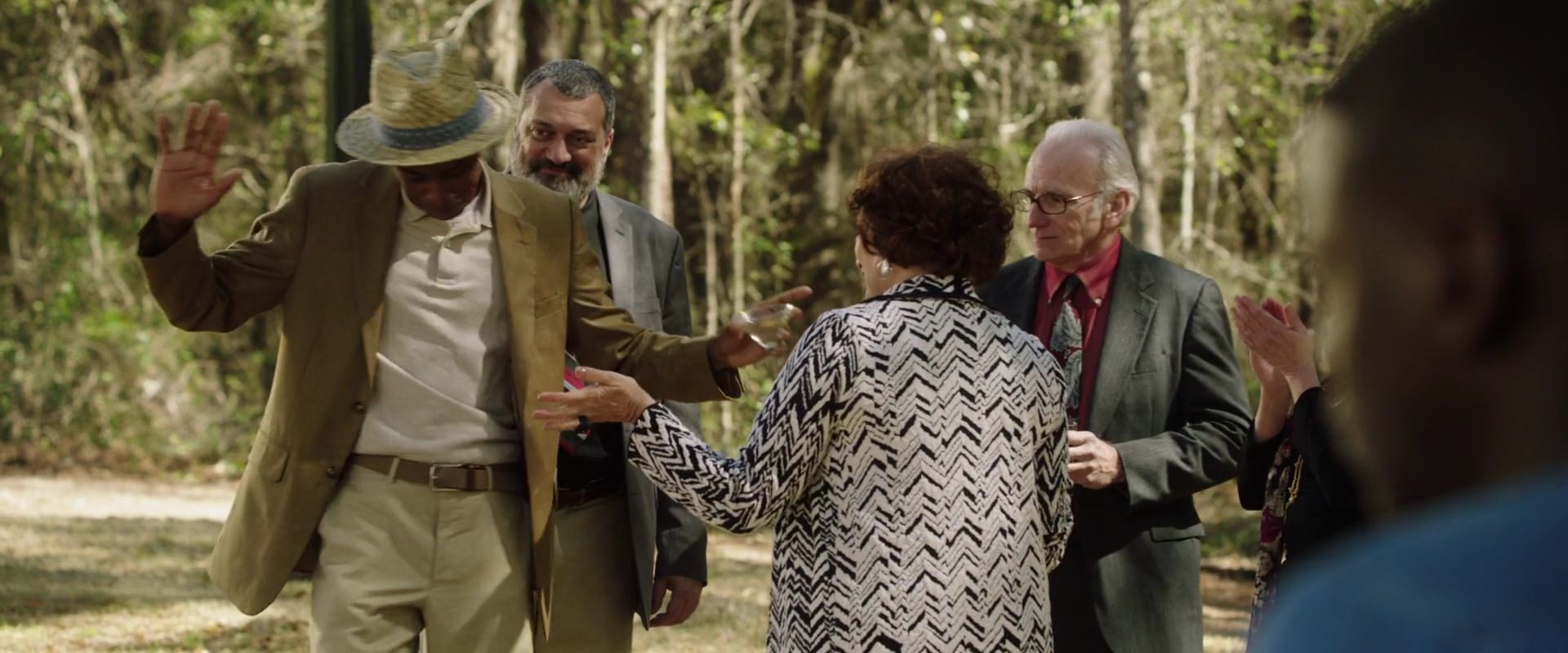
Jordan Peele claims that Get Out is a metaphor for a subtler form of racism existing in a society that thinks it has already dealt with racial discrimination because it elected Barack Obama as president (Rose’s father, incidentally, keeps emphasizing that Obama was the best president and would gladly vote for him a third time). Peele portrays white liberals who seemingly love Black people but only as another fashion, trend, or gadget. They want—in the film’s case, literally—to be Black because it is currently considered cool. Note the transplantation process itself—the Armitages claim that Black people are ideally suited for it because they have better genes. Better, meaning those that will make them puppets of white people, devoid of their own will.
Ending
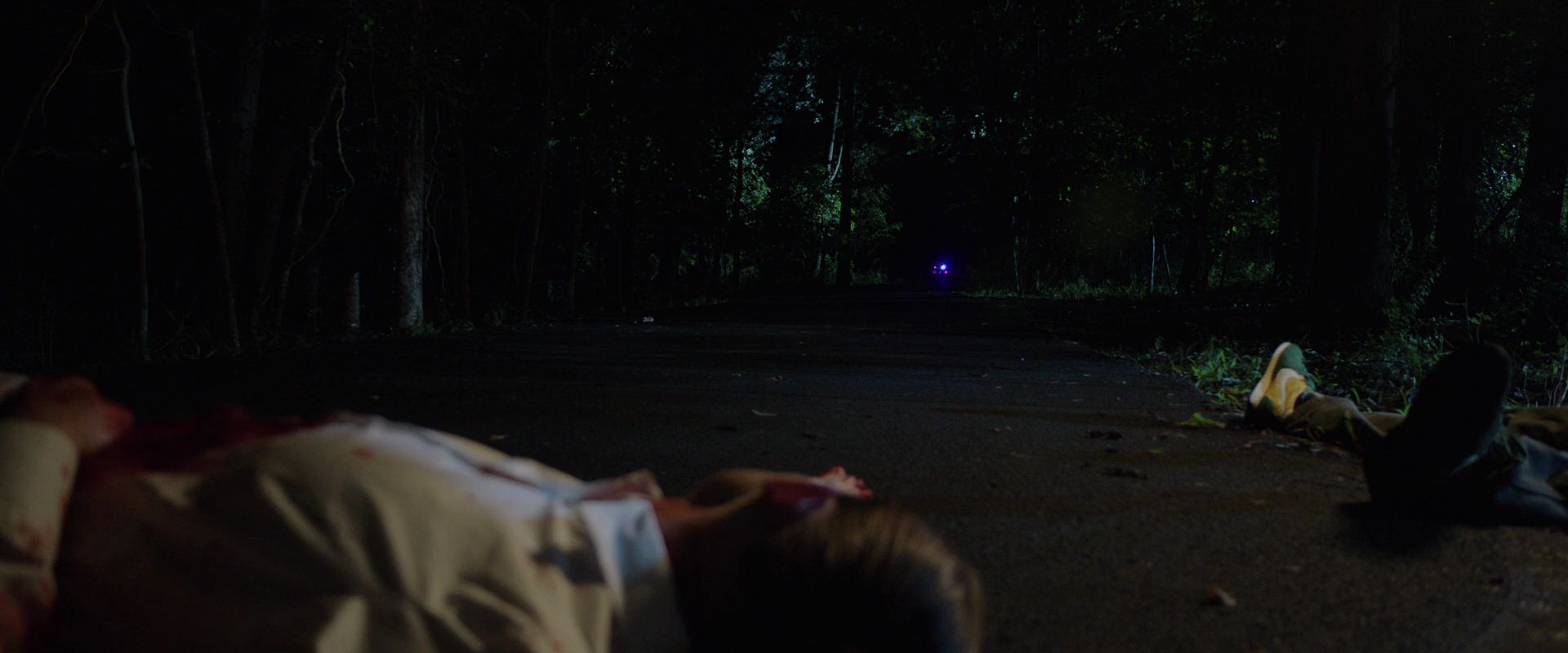
The original ending of the film was as follows—after the final massacre, the police arrive at the scene. Seeing Chris and the dead Armitage family members, the officers assume he was the attacker, arrest him, and he ends up in prison. In the final version, Chris sees a car with sirens and instinctively raises his hands (even though he is the victim), but it turns out his friend, Rod, has arrived on the scene (previously completely ignored by the police). The director changed the ending because, during the production, there were many acts of support for the Black community and protests against police brutality in the United States. Peele decided that his protagonist deserved a bit of hope and at least a partially happy ending.

